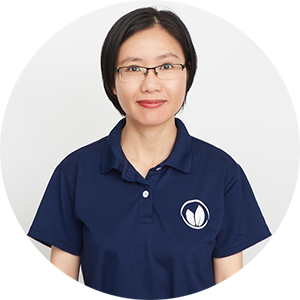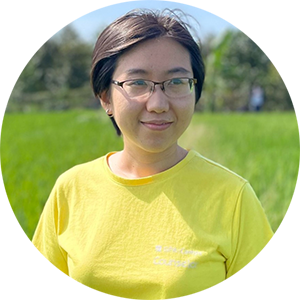What happens when diplomacy meets artificial intelligence in a high-stakes climate negotiation? Dao Pham, Linh Nguyen, Thuy Nguyen and Than Vo, participants from the Executive Programme in Development Policies and Practices (DPP), took part in the AI Negotiation Challenge at Harvard, simulating the final days of COP30. Representing Vietnam, they tested their negotiation skills, policy acumen, and AI fluency in a demanding international setting. In this testimonial, they share how the DPP Programme prepared them for the challenge, what they learned about human-AI collaboration, and why Southeast Asia’s voice in global climate negotiations must be both strategic and inclusive.
We were motivated by the unique opportunity to test the boundaries of diplomacy and technology in a real-time, high-stakes simulation. The AI Negotiation Challenge provided a platform not only to engage with urgent global issues such as the fossil fuel transition but also to experiment with how AI can augment human decision-making in complex policy environments. Although we had never participated in a real COP before, the DPP gave us a solid foundation in understanding the roles of the UNFCCC and COP in global governance, as well as exposure to negotiation theory, policy analysis, and the use of AI for foresight. These topics sparked our curiosity and made us eager to experience how negotiations actually happen on the ground.

Our experience in the DPP Programme was instrumental in preparing us. It sharpened our ability to think systemically, engage with diverse stakeholders, and structure arguments under pressure. Moreover, the emphasis on practical skills in negotiation, policy analysis, and scenario planning was directly aligned with the simulation’s requirements.
Dao Pham

The challenge simulated the final days of COP30 in Belém, Brazil, through three intensive rounds. In Round 1, we drafted a national position paper responding to the Brazilian Presidency’s opening declaration, focusing on our country’s stance on fossil fuel transition, alliances, and red lines.
Thuy Nguyen
Round 2 involved reviewing a draft consensus document and proposing bracketed amendments to influence its content, requiring alliance-building, strategic framing, and reciprocal negotiations with other delegations.
Finally, Round 3 was a simulated press conference, where we had to communicate our position on the final outcome to a broader public, shaping the narrative and defending our country’s decisions.
Each scenario was both collaborative and competitive, mirroring real-world UNFCCC dynamics.
One key insight was that AI excels at structuring complexity. It helped us identify points of convergence and divergence among negotiating parties, track stakeholder positions, and frame proposals with precision and clarity.
Another lesson was the importance of human-AI collaboration. AI-supported scenario analysis and drafting, but the human dimension, such as reading tone, interpreting subtext, and building trust, remained irreplaceable. The most effective teams were those that used AI not just as a tool but as a thinking partner.
In Southeast Asia, the intersection of AI and negotiation is increasingly relevant, particularly in the context of climate change, regional cooperation, and economic transformation. Countries in the region face shared challenges such as rising sea levels, energy transitions, and the need for sustainable development, all of which demand complex, multi-stakeholder negotiations.
AI can support these processes by enhancing data-driven decision-making, forecasting negotiation outcomes, and helping governments evaluate policy trade-offs in real-time. For example, AI could model the implications of regional energy policies on food security or simulate different climate finance scenarios to inform ASEAN-level negotiations.

As professionals from Vietnam, we believe we have a critical role to play as connectors, bringing together local knowledge, policy insights, and emerging technologies. We can advocate for the responsible use of AI in public decision-making and ensure that these tools reflect our region’s priorities, including equity, resilience, and inclusive development. Our role is to ensure that AI empowers and does not replace human judgment and supports cooperative, culturally aware diplomacy in Southeast Asia’s diverse political landscape.
Thanh Vo
Don’t be afraid to explore and experiment. You don’t need to be an expert in AI to take part. What matters is curiosity, a willingness to learn, and a clear sense of purpose. Use AI as a thinking partner to support your ideas, not to replace your own reasoning. Focus on building relationships and working well in a team, because negotiation is as much about people as it is about positions.

We also strongly encourage future participants to take care of their health and energy during the challenge. Although it was a simulation, the teams were highly professional and focused, and the experience felt very close to attending a real COP. The negotiations were intense and continuous. As a team from Southeast Asia, we faced an additional challenge due to the time zone difference. The main sessions took place from around 9 p.m. to 5 a.m. in our local time, across two consecutive days. It was truly demanding, but everything we gained from this experience was absolutely worth it.
Linh Nguyen
The second edition of the AI Negotiation Challenge will take place in Geneva on 23 and 24 May 2025. To learn more and register, visit our webpage.
For more information about the Executive Programme in Development Policies and Practices, visit executive.graduateinstitute.ch/dpp.